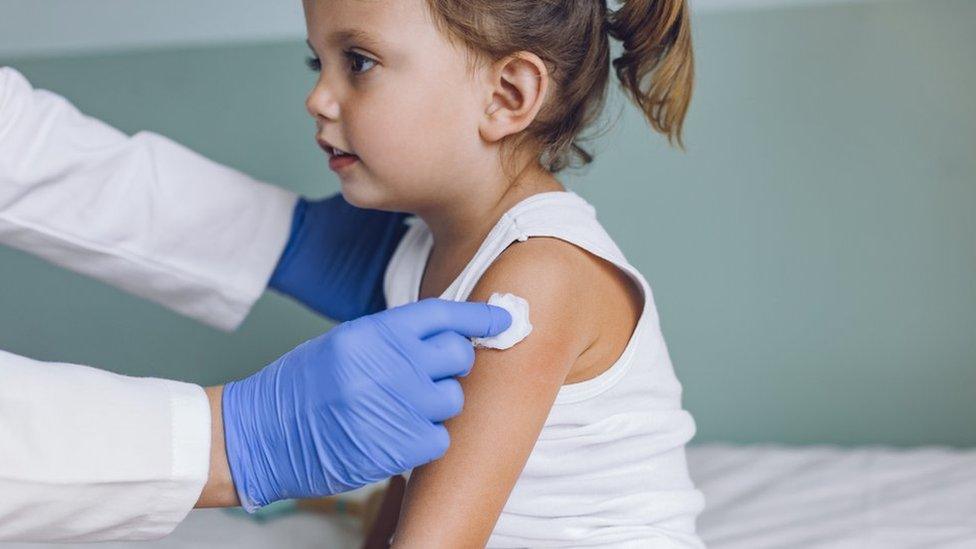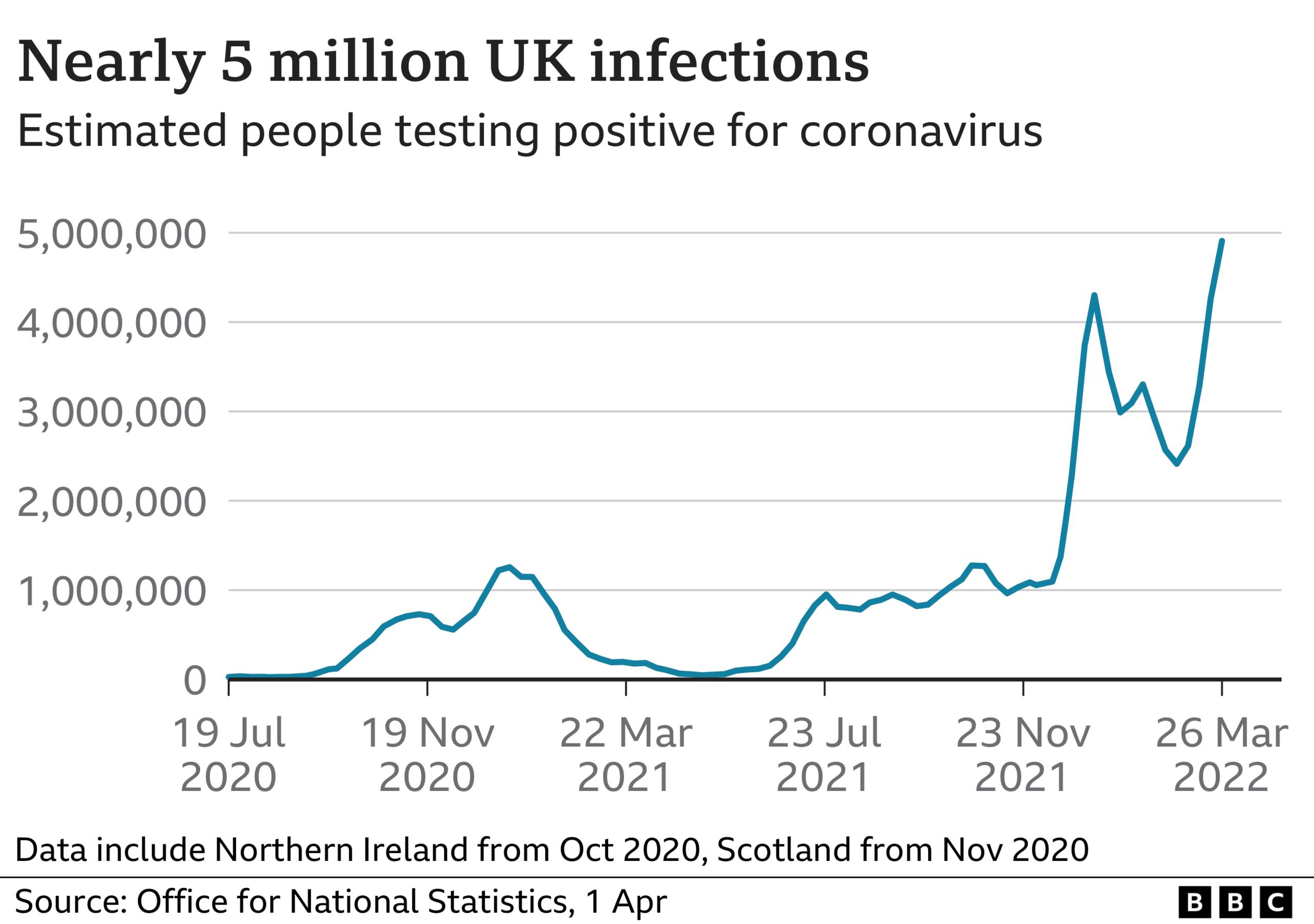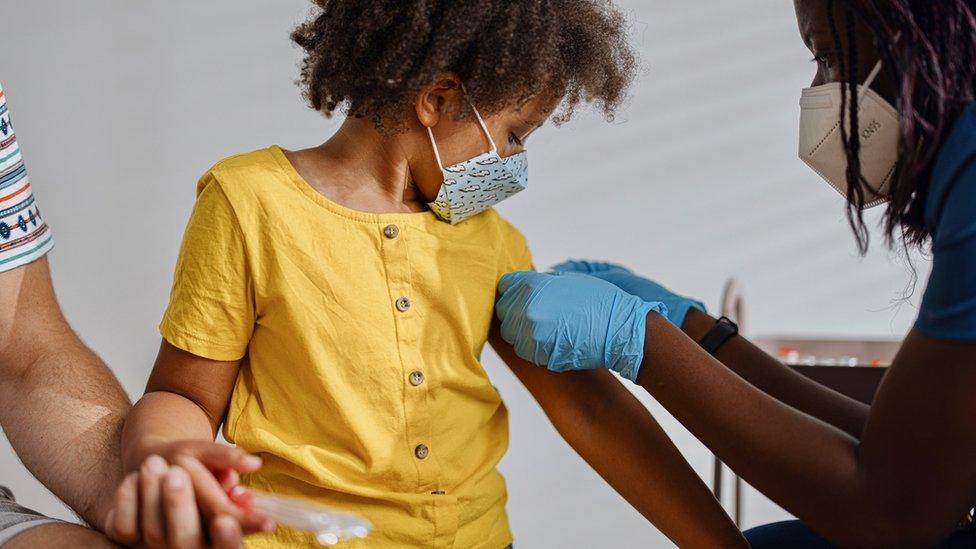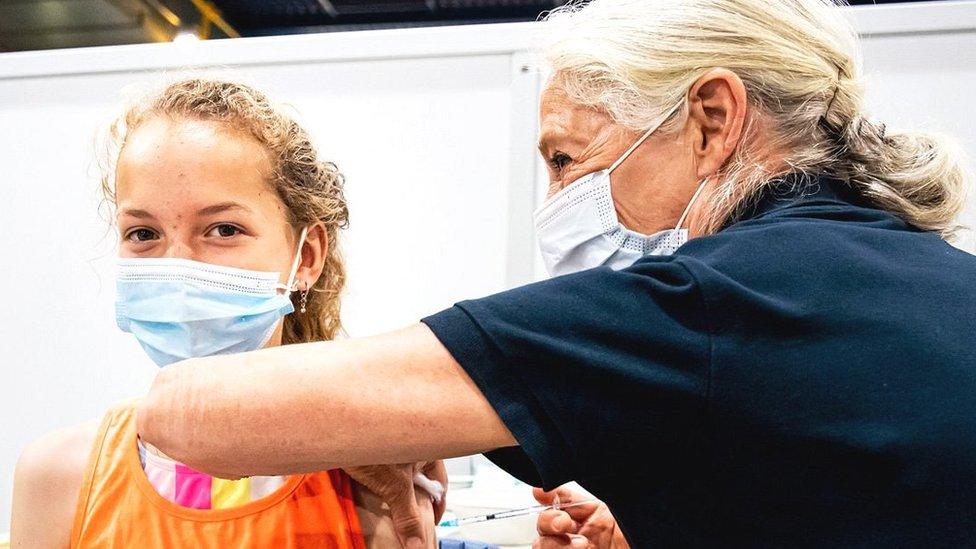Covid vaccines now available for five to 11-year olds in England
- Published

Parents and carers of five to 11-year olds in England can now book a low-dose Covid vaccine for their children.
The jabs - already widely used in other countries - can be booked online and will be available from hundreds of sites from Monday.
It comes as officials estimate that a record 4.9 million people in the UK have the virus - up from 4.3 million the week before.
The figures were released as free tests ended for most people in England.
The UK's vaccine advisers said the jabs would help "future-proof children's defences" against infections.
Scotland, Wales and Northern Ireland already offer the jabs.
In general, most children are not at high risk of becoming severely ill from Covid.
In February, the Joint Committee on Vaccination and Immunisation said vaccines should go ahead to prevent "a very small number of children from serious illness and hospitalisation" in a future wave of Covid.
It recommends two doses of the low-dose vaccine, 12 weeks apart, with some five million children now eligible.
The vaccine contains a third of the adult dose.
Dr Nikki Kanani, GP and deputy lead for the NHS Covid-19 vaccination programme, said vaccines remained the best defence against the virus.
She added: "My 13-year-old son has had his two vaccinations, and I'll be booking my 10-year-old daughter in for hers at the earliest opportunity, and would encourage all parents to read the NHS information available and consider doing the same."
Meanwhile, Health Secretary Sajid Javid said: "Children without underlying health conditions are at low risk of serious illness from Covid, and the priority remains for the NHS to offer vaccines and spring boosters to adults and vulnerable young people, as well as to catch up with other childhood immunisation programmes."
Most appointments will be available at local vaccination centres and community pharmacies. Options for walk-in jabs will also be on offer.
Parents and guardians of eligible children will be sent invitations from the NHS in the next few weeks.
Young children who have conditions that put them at increased risk from Covid, or who live with people with weakened immune systems, have already been offered jabs.
The wider rollout of jabs for children comes after latest estimates from the Office for National Statistics suggest that about one in every 13 people in the UK has coronavirus, with cases reaching nearly 5 million.
The figures for the week ending 26 March are thought to give the most accurate reflection of what is happening with the virus in the community.
The surge is partly driven by the contagious Omicron BA.2 sub-variant and people mixing more.

Jim McManus, president of the Association of Directors of Public Health, said the surge in numbers was causing disruption for businesses, workplaces, in schools and in the NHS, with staff going off sick.
People can help curb the rise by ventilating areas and wearing masks in crowded spaces, he told BBC Radio 4's Today programme.
"It is only the actions that we take that will keep this virus low and enable the NHS and businesses to do business as usual," he said.
"If we want to be optimistic, we have to do some work to get there."
Meanwhile, the government's "living with Covid" plan means free testing will only continue for certain groups - including some people with weakened immune systems, people admitted to hospital and health and care staff.
Government minister Brandon Lewis told Today there would be a point where support packages introduced during the pandemic would taper off and end, as the country learned to live with Covid.
- Published2 April 2022

- Published16 February 2022

- Published17 February 2022
